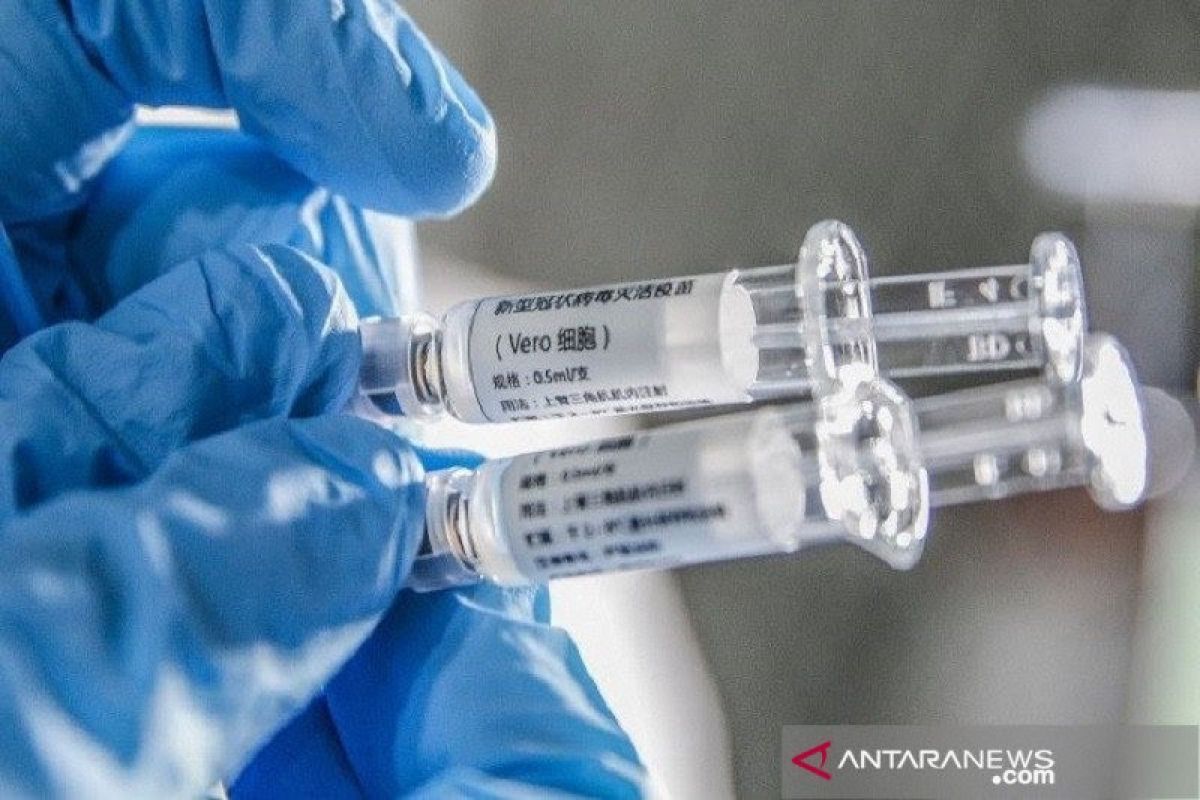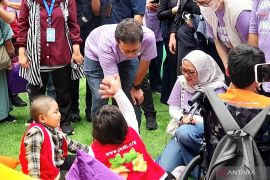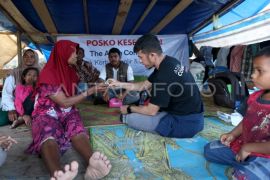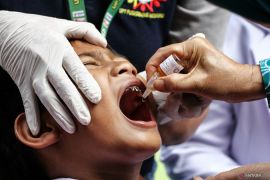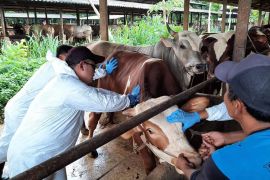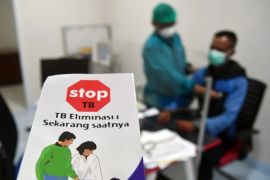As per the WHO target, countries need to vaccinate at least 40 percent of their population by the end of 2021.
"Indonesia has managed to achieve it (vaccinated 40 percent of its population) faster than the WHO target," Tarmizi said in a written statement received here on Monday.
The WHO had asked all countries to vaccinate at least 10 percent of their population by the end of September 2021, 40 percent of the people by the end of 2021, and 70 percent by mid-2022, she noted.
As of Sunday, Indonesia has administered around 215.6 million vaccine doses and vaccinated 130.3 million people with the first dose and 84.1 million people with the second dose, she informed. The nation is targeting to inoculate 208.2 million under the national immunization program, she said.
Meanwhile, the number of recipients who have received the booster or third dose has reached 1.19 million, she added.
Related news: Gov't prioritizing elderly over children for COVID-19 vaccination
According to Tarmizi, this achievement has been the result of the hard work of all sections of the nation who provided the vaccines and all Indonesian people who participated in the country's vaccination program.
The stock of COVID-19 vaccines in Indonesia as of Saturday (November 13, 2021) stood at 342.5 million doses, both in finished and bulk form, she informed. Indonesia also received 4 million doses of the Sinovac vaccine on Saturday, she said.
Tarmizi then appealed to the public to not doubt or be picky regarding the vaccines used in the national vaccination program. The government guarantees that the vaccines administered to the public are safe, of good quality, and beneficial, she assured.
Related news: Greater compliance to health protocols among vaccinated residents: NGO
According to her, COVID-19 vaccines make the body relatively more resistant to the virus, help prevent symptoms and hospitalization, as well as reduce the mortality risk.
"However, it (a vaccine) does not make people 100-percent immune to viral infections, so they can still be infected and infect (other people). For those who have been vaccinated, please continue to follow the 5M health protocols," she remarked.
Related news: Health Ministry reviewing antivirus medicines besides Molnuvirap
Related news: Offline learning, condolence visits reason behind rise in cases
Translator: Andi Firdaus, Raka Adji
Editor: Fardah Assegaf
Copyright © ANTARA 2021
